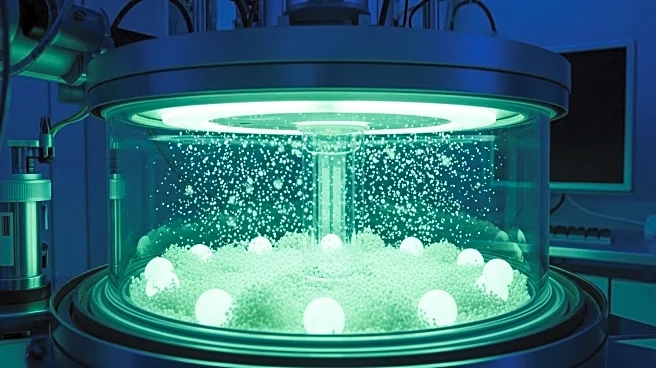What is the story about?
What's Happening?
Lineage Cell Therapeutics, a clinical-stage biotechnology company, has announced the launch of a new islet cell transplant program aimed at addressing Type 1 Diabetes (T1D). The initiative focuses on developing a large-scale manufacturing process for islet cells, which are crucial for insulin production. The company aims to establish a production system capable of supporting the entire process in a dynamic culturing environment, potentially overcoming a significant hurdle in the commercialization of islet cell therapy. CEO Brian M. Culley highlighted the potential of islet cell transplants to offer a functional cure for diabetes, noting the challenge of producing sufficient material for the patient population. Lineage plans to demonstrate this capability using one of its proprietary cell lines, with the goal of supporting clinical campaigns in T1D. The program builds on Lineage's recent GMP manufacturing successes and aims to create a commercially viable production modality for islet cells.
Why It's Important?
The development of a scalable islet cell manufacturing process could significantly impact the treatment of Type 1 Diabetes, a chronic autoimmune condition affecting millions worldwide. By potentially offering a functional cure, this program could reduce the dependency on lifelong insulin therapy, improving the quality of life for patients. Successful commercialization of islet cell therapy would not only benefit individuals with T1D but also position Lineage Cell Therapeutics as a leader in the diabetes treatment market. The initiative could lead to partnerships or licensing opportunities, expanding the company's reach and influence in the biotechnology sector. Moreover, advancements in cell therapy manufacturing could have broader applications, enhancing Lineage's capabilities in other therapeutic areas.
What's Next?
Lineage Cell Therapeutics plans to demonstrate the feasibility of its islet cell production system with a modest investment. If successful, the company will seek to establish system compatibility with hypo-immune cell lines to support clinical trials in T1D. The program's progress could attract interest from potential partners or investors, leading to collaborations or licensing deals. Additionally, insights gained from this initiative may be applied to other transplant programs, potentially accelerating the development of therapies for other conditions. Stakeholders, including diabetes advocacy groups and healthcare providers, will likely monitor the program's advancements closely, anticipating its impact on diabetes treatment options.
Beyond the Headlines
The ethical implications of developing a functional cure for Type 1 Diabetes are significant, as it could shift the focus from managing symptoms to addressing the root cause of the disease. This advancement may prompt discussions on healthcare accessibility and affordability, ensuring that innovative treatments are available to all patients. Furthermore, the program's success could influence public policy, encouraging investment in biotechnology research and development. Long-term, the initiative may contribute to a paradigm shift in how chronic diseases are treated, emphasizing regenerative medicine and personalized therapies.


















